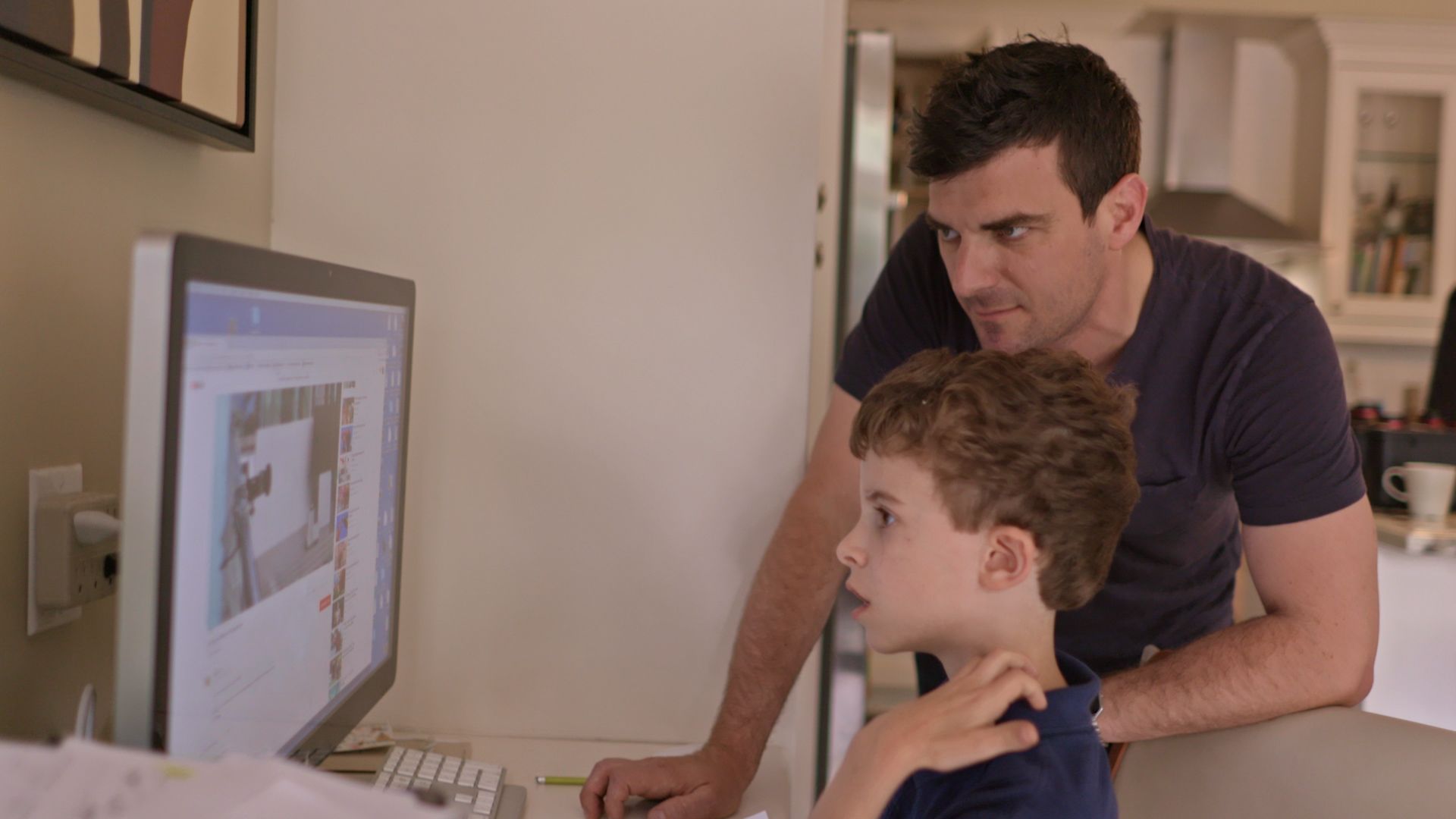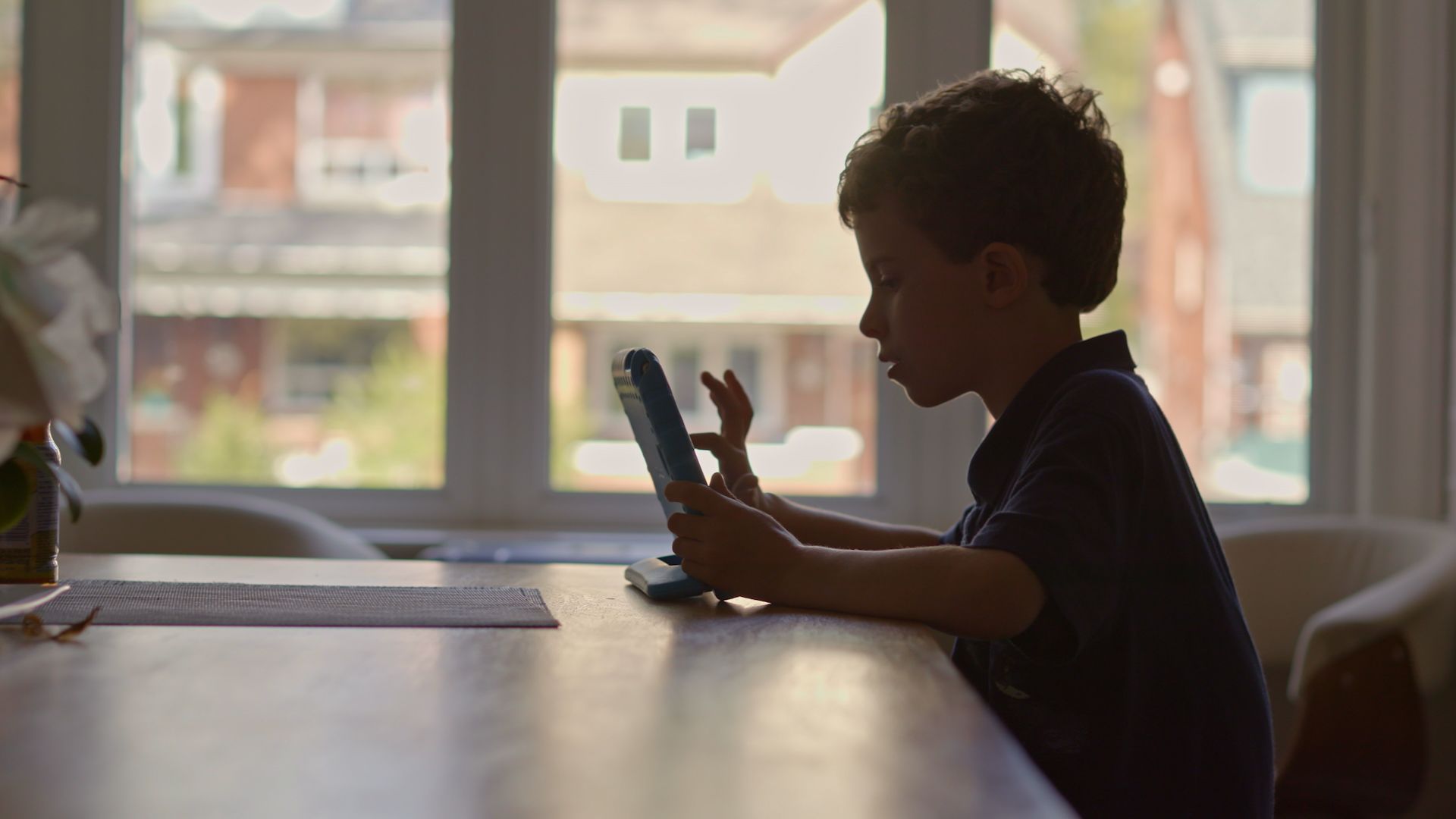If you’re like me and my family, you are probably overwhelmed by “screen time” and struggle daily with the barrage of requests to check in and stay connected, whether through social media, emails or messaging apps that bombard us and urge us to turn our attention to our devices. While making our film “Screened Out” I met with many doctors, addiction experts and tech insiders who told us again and again how tech giants are knowingly changing our behaviors and creating addictive patterns in all of us.
One of the worst parts of this manipulation is the fact that they are going after our children to hook them early and create users for life. This “new’ childhood will be filled with creating perfect social media posts, responding to messenger pings and playing endless games that stimulate and provide instant digital gratification. The childhood you remember full of fun playing outside, long imaginative playtime and getting up to “no good” is gone. The Digital childhood is upon us and may be damaging our kids. This war for our attention fueled by app and gaming companies is stressful for adults The problem is compounded for children
Many parents are setting a negative example with our screen use, by checking our devices all day and ignoring our children when they try to communicate with us. They start to think this is a perfectly acceptable way to behave.. It’s important that we learn how to navigate these devices and try to turn our attention away from them. We can then help our kids do the same.
Here are just a few things that my family and I do to try to cut back on our screen time. I’m not talking about your kids video conferencing their grandparents, nor am I talking about screen time for school work or learning. We’re talking about social media, lots of passive video use and playing endless games that create addictive loops that we have trouble getting out of.

Forget “device free” dinners, try “device free” mornings or afternoons.
Having a device free dinner is nice. You can all engage each other and that is a step in the right direction. But as soon as dinner’s over, everybody’s back on the devices again making up for lost time. Try taking an afternoon where you have to engage without screens, learn something together or do an activity. And start small, you don’t need to do it every day or even every other day, first try it once a week. Then the next week try it twice. It’s important when we are building healthy habits to do it gradually if we want to succeed.
Turn off your social media notifications and set a time each day to check them.
Our phones tell us when we should be interactive with them. Take control back. Try to turn off all social media notifications and have a set time in the day when you can go and take a look at them. Don’t worry if someone has something urgent they need to tell you, they will call if that’s the case. Remember these platforms have sneaky ways to keep you coming back, like telling you when someone has read your message so that it creates an immediate need for a response. Or when you post a picture and you need to check it to see how many likes it received. This can all wait. When you feel you need to check your device, take a breath, wait ten seconds and do something else.
Make your children earn their screen time.
In our home we make sure that our kids do their school work, have ample amounts of playtime, do chores and learning, then later in the day if they’ve done all the things they are supposed to do they might get 30 minutes to an hour of screen time. It’s usually at a set time like 4pm so the kids won’t be asking for it all day or try to bargain with you. Yes, it’s hard at first and you will find resistance, but stay strong. Worried about your kids being bored? Boredom may be good for children. Studies show our brains do wonderful things when they are forced to wonder and not be under constant stimulation. You will start to see your kids making up games, drawing more, and being creative. It’s lovely. Make sure to have some crafts and art supplies on hand.
Make sure there is an end or time limit.
When we read newspapers or books, see a show or play a game of catch there is an end. Having “end points’ is good for us, it tells us when to move on. The tech giants, like Vegas slot machines, understand that there shouldn’t be an end to the game or feed. This keeps us scrolling and immersed in the loop looking for quick rewards which never satiate our appetite for them. Our children play open world games for hours and hours doing the same. I try to avoid any app or game with a bottomless feed or lack of “end point” as they are very hard to disengage from.. But if you must use them, try limiting your time on them during the day. If you have young children that must play games, let them play games with “levels” or have a set time limit. Make sure to warn your kids a few times before you disconnect them. That should help with the negative response to disconnecting from the app or game.

In short we’re living in a time where your attention is an expensive commodity that these companies are using to exploit and control. It is important that we win back our attention from them by figuring out the tactics they use to keep us locked in. And we need to win that attention back. It’s up to us to drive this amazing technology in a direction where we control it, and it does not control us.


